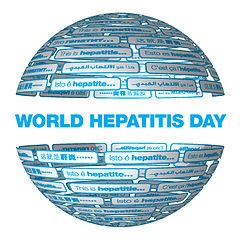Dr Tehreem Fatima
World Hepatitis Day & Pakistan!
Hepatitis is an inflammation of the liver that viral infection, alcohol consumption, several health conditions, or some medications can cause. There are five main types of viral hepatitis: A, B, C, D, and E. Each type has a different cause, mode of transmission, and outcome. Hepatitis A and E are usually transmitted through contaminated food or water and cause acute, short-term infections that vaccines can prevent. Hepatitis B, C, and D are transmitted through contact with infected body fluids, such as blood, semen, or vaginal secretions. These types can cause chronic, long-term infections that can lead to liver cirrhosis or cancer. Hepatitis B and C can be prevented by vaccines and treated by antiviral medicines.
Hepatitis D can only occur in people who already have hepatitis B. Hepatitis is a major public health problem in Pakistan, where about 15 million people are affected by hepatitis B or C. The main reasons for the high prevalence of hepatitis in Pakistan are unsafe injections, unhygienic instruments, unscreened blood transfusions, and poor sanitation. The government of Pakistan has announced an ambitious plan to eliminate viral hepatitis by 2030 by scaling up prevention, testing, and treatment services. Some of the strategies include switching to safety-engineered syringes, improving infection control practices, screening blood donors, and providing free treatment for hepatitis patients.
Hepatitis is a serious disease that can have severe consequences for the health and well-being of individuals and communities. However, it is also a preventable and treatable disease that can be eliminated with concerted efforts from all stakeholders. By raising awareness, improving access to services, and ensuring the quality and safety of health care, Pakistan can achieve its goal of ending hepatitis as a public health threat.
Health is a provincial subject now. Therefore, the capacity of the provinces should be enhanced in this regard. The provincial governments should initiate instant programmes with the help of the private sector and mobilize their health departments to ensure that each person is tested and, if he is suffering from the disease, he is being treated medically.














